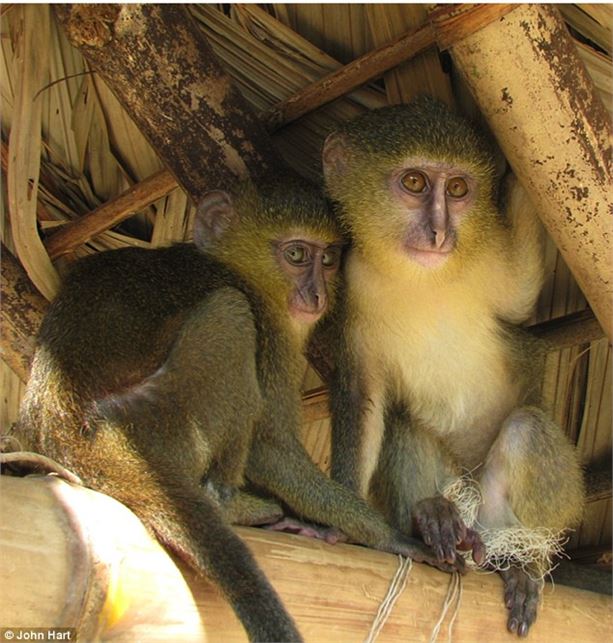The young animal resembled an owl faced monkey (Cercopithecus hamlyni) but the colour of its rear end was different to that of any known species, the researchers writing in the journal PLoS ONE said.
Other wild lesula (Cercopithecus lomamiensis) have since been found in their remote range in central Democratic Republic of Congo, where they live in forests and feed on leafstalks, fruit and flower buds.
The discovery of the new species, in one of the country’s last unexplored forest areas, is only the second time a new monkey species has been found in Africa in the last 28 years. Although the 6,500 square mile area in which the shy lesula is found is remote and sparsely populated, the researchers warn the monkey is vulnerable to extinction as a result of hunting for bush meat.
They called for controls on hunting and the creation of a protected area covering its range to conserve the lesula and other wildlife found in the region.
Researcher John Hart said: "The challenge for conservation now in Congo is to intervene before losses become definitive. Species with small ranges like the lesula can move from vulnerable to seriously endangered over the course of just a few years".
- Tags: Democratic_Republic_of_Congo 2007 species monkey distinctive blue rear Africa lesula young female primary_school_director Cercopithecus hamlyni colour researchers journal PLoS Cercopithecus_lomamiensis forests fruit flower forest_areas 28 years 6 500 square mile area region John Hart Congo vulnerable
- Categories:










































